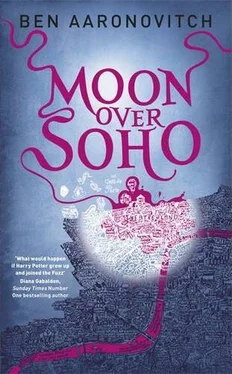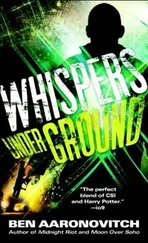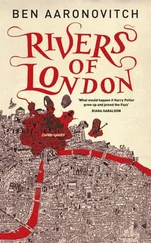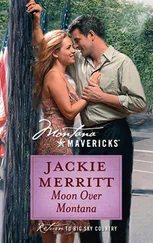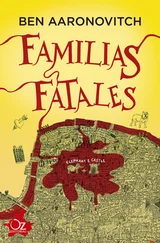“Or Blackpool,” said Stephanopoulis.
“Burlesque among the illuminations,” I said.
“There’s another bloke,” said Smith suddenly. “Another fucking magician, I don’t know where he came from. One minute he wasn’t there and the next minute he was.”
“When did he appear?” I asked.
“In the summer,” said Smith. “A couple of weeks after that fire at Covent Garden.”
“Did you see him?” I asked.
Smith shook his head. “I never saw nothing,” he said. “And nobody said nothing neither.”
“Then how did you know he was there?” asked Stephanopoulis.
“You modern coppers think you’ve got it all sussed,” said Smith. “This is Soho, this is my manor, this is my patch. I’m like a tiger. I know when something’s changed in my patch. Fuck, I can tell when someone’s opened a new Chinese takeout, so yeah, when something that evil creeps back in — I felt it.” He gave us a pitying look. “An old-style copper would have felt it too, even a tosser like Johnson would have known something was up.”
“And gone around looking for a bung,” said Stephanopoulis.
Smith shrugged. “What else are they for?” he asked.
“So why didn’t you scarper?” I asked.
“I don’t dabble in anything I’m not supposed to these days and I cater to a whole different set of punters now — I’m kosher,” he said. “So why worry? Besides, everything I’ve got is invested in my business.”
“So what changed?” I asked.
“I reckon it was you,” he said. “That first time, you were barely out the door when he comes waltzing in and sits down in the same chair.”
“Who did?” asked Stephanopoulis.
“That’s just it,” said Smith. “I don’t know. I can remember his voice, what he said, but I can’t remember his face.”
“How can you not remember his face?”
“You ever forget where you put your bleeding keys?” asked Smith. “It’s just like that, I know he was there, I know he sat in front me but, fuck me, I cannot remember what he looked like.”
“How do you know he was this new magician then?” asked Stephanopoulis.
“Are you deaf?” asked Smith. “Do you think I’m demented, that I’ve got mad cow disease? I don’t remember the man’s face — does that sound like a natural phenomenon to you?”
Stephanopoulis glanced at me but I could only shrug — magically speaking, this was getting way above my pay grade. I was also getting a cold feeling in my stomach about the way my two cases were beginning to merge.
“What did Mr. Forgettable want?” I asked.
“He was asking after the same bird you were,” he said.
“Peggy?” I said.
He nodded. “What did I know about her, what did I know about you, and hadn’t I been one of the people at Larry the Lark’s debut? That’s what he called it — his debut.”
Stephanopoulis tensed, she wanted to know who Peggy was, but the second cardinal rule of an interview is that the police must maintain a united front at all times. You certainly don’t ask each other questions in front of a suspect. Technically that’s actually a breach of rule one, never give away information, but we’re the police so we like to keep things simple.
“You’re sure this was not the same man as the old magician?” asked Stephanopoulis.
“What can I say,” said Smith. “He was young and he was posh — that’s all I know.”
“Where was the old magician’s club?” I asked.
“You really don’t want to know,” said Smith.
“Yeah, Smithy,” I said. “As it happens I absolutely do want to know.”
UNLESS THE wheels have come off big-time you don’t just stroll around to a location and kick in the door. Apart from anything else, it’s not that easy to kick in a door and the last time I tried to do it I broke a toe. Commercial premises are usually harder to get into than private homes, so we first made sure that the specialist entry team was available and then booked them for later that afternoon. That left us enough time to apply for a search warrant under section 8 of the Police and Criminal Evidence Act (1984) using carefully selected highlights from Alexander Smith’s interview. I say “us,” but one of the advantages of working with a full Murder Team is that Stephanopoulis had lots of minions to do the paperwork for her. Meanwhile the two of us retired to the Burlington Arms for a stiff drink — we reckoned we’d earned it.
In the indifferent old days a proper coppers’ bar would have had a linoleum-covered floor, nicotine-stained wood paneling, and brass furnishings that were antique only by virtue of the fact that nobody could be bothered to replace them. But times had changed because now you could get a passable Cumberland sausage in onion gravy with chunky chips upstairs in the dining room, very nice with a Scrumpy Jack cider and just the thing after a hard morning’s interrogation. Stephanopoulis had the leek soup with a side order of rocket and a single-malt. I noticed a karaoke machine in the corner and asked whether it got a lot of use.
“You should be here for competition nights,” said Stephanopoulis. “Clubs and Vice versus Arts and Antiques gets very heated — they had to ban ‘I Will Survive’ after there was a fight. Tell me about your investigation.”
So I told her about the dead jazzmen and my efforts to track the person or persons unknown who seemed to be feeding off them.
“Jazz vampires,” said Stephanopoulis.
“I wish I hadn’t started calling them that,” I said.
“What do you think the magician wants with them?” she asked.
“I don’t know,” I said. “To study, to enslave — we need to know more.”
That was the cue for a minion, in the form of a rather sour-faced DC, to enter with the search warrant and present it to his boss. Stephanopoulis was careful to wait for him to leave before asking me how I thought we should handle the raid.
Unless you’re going to knock and ask nicely there are basically two ways to execute the search warrant. The first is the traditional rush: smash in the door and run in screaming “Police” and “Clear” and giving a swift kicking to anyone who doesn’t lie down on their face as soon as you tell them. The second has no formal name but involves sidling up to the front door in plainclothes, knocking it in, and diving in like a posse of really persistent door-to-door salesmen. I suggested the latter, considering that we didn’t know what we were blundering into.
“Keep some people on standby,” I said. “Just in case.”
“Easy for you to say,” she said. “It’s not your overtime budget.” She finished her scotch. “Who goes in first?”
“I do,” I said.
“Not going to happen,” she said.
In the end we compromised and both went first.
In the 1950s and ’60s property in Soho was cheap. After all, who wanted to live in the middle of smoky old London? The middle classes were all heading for the leafy suburbs and the working classes were being packed off to brand-new towns built in the wilds of Essex and Hertfordshire. They were called New Towns only because the term Bantustan hadn’t been invented yet. The Regency terraces that made up the bulk of the surviving housing stock were subdivided into flats and shopfronts, basements were expanded to form clubs and bars. As property prices started rising, developers snatched up bomb sites and derelict buildings and erected the shapeless concrete lumps that have made the ’70s the shining beacon of architectural splendor that it is. Unfortunately for the proponents of futurism, Soho was not to be overwhelmed so easily. A tangle of ownership, good old-fashioned stubbornness, and outright corruption held development at bay until the strange urge to turn the historic center of British cities into gigantic outdoor toilets had ebbed. Still, developers are a wily bunch and one scam, if you can afford it, is to leave the property vacant until it falls derelict and thus has to be demolished.
Читать дальше
